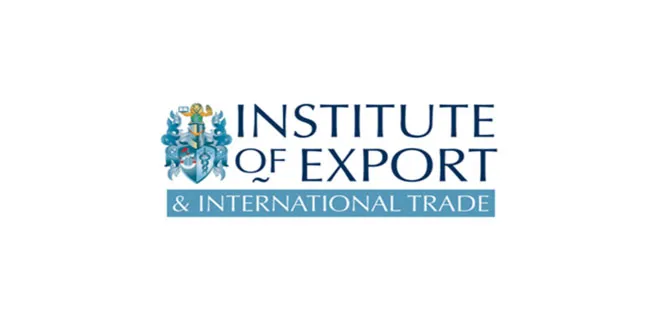
• The report recommends the creation of a new, centralised border function at the heart of government, accountable to a newly created position of Minister for the Border.
• A report launched by the Institute of Export & International Trade and Flint Global during International Trade Week identifies a vision for border modernisation, driven by real world requirements and embracing technologies such as a modern Single Trade Window.
A new report by the Institute of Export & International Trade (IOE&IT) and Flint Global entitled ‘Enhanced efficiency: Building a UK border fit for the 21st century’ has found that challenges for UK traders continue to increase.
The report identifies five key policy pillars for a new world-class UK border. These include:
• Creating a new, centralised border function at the heart of government, accountable to a new Minister for the Border tasked with oversight and overall responsibility for border management.
• Integrating new technology and systems that embrace regulatory change.
• Increasing investment, including devising a longer-term funding model for the border.
• Placing a greater emphasis on education and accreditation.
• Using UK’s border strategy as a key to fostering effective international relationships.
Marco Forgione, Director-General at The Institute of Export & International Trade, said: “The full digitisation of trade is an essential element of our future trading system, which must include our border., We need to empower British businesses, make it simple and friction free to trade more effectively and competitively. These technological developments will help businesses take advantage of the Free Trade Agreements the Government is signing.”
Technological developments and digitalisation of trade processes are at the forefront of border modernisation. The UK has already committed £180 million to developing a Single Trade Window, which would allow traders to submit information once via the “Tell us once” approach, through an online portal.
In nations where Single Trade Windows exist show the advantages of a fully integrated system. By utilising existing data sources provided by proven HMG suppliers, including but not limited to Cabinet Office, Defra, HMRC and the Home Office, risk assessments and oversight can be moved away from the physical border. Successful pilot projects for the Government’s existing Ecosystem of Trust Trusted Trader scheme should be integrated into the design of the Single Trade Window to expedite its development.
The report recommends fresh emphasis is also needed on border education and ongoing learning. As policy affecting borders changes, so will the requirements placed on those moving goods across it. Keeping up to date with requirements is therefore crucial and allows for the smooth and cost-efficient flow of trade. This will require government and businesses working in lockstep.
One of the most forward-thinking recommendations in this report is that of a Future Borders Bill, which would provide a permanent legal basis and vehicle for government and officials to innovate, pilot and incorporate modern approaches to border management. The Future Borders Bill would partially build upon plans in the current Electronic Trade Documents Bill, by outlining a transition to fully electronic input and use of trade-related data. This would make trade more cost-effective for small businesses and also more environmentally friendly, helping to achieve Sustainable Development Goals.
Marco Forgione, Director-General at The Institute of Export & International Trade, said:
“Borders. A word that so often brings up conflicting connotations. Together with our friends at Flint Global, the Institute of Export & International Trade has set out a vision for a modernised border which provides new opportunities.
Opportunities for businesses, big and small, to expand and innovate, opportunities for the UK government to regulate more cohesively. An opportunity for a modern border which is built on a foundation of compliance, assurance, audit and then enforcement.
We believe a Minister for the Border and a Future Borders Bill will provide the much needed framework for the international community to work on bilateral arrangements such as trialing e-documentation. Borders must be better and we believe our recommendations set out this conviction.”
Sam Lowe, Partner at Flint Global’s Trade and Market Access practice, said:
"Flint Global is delighted to collaborate with the IOE&IT on this report, which highlights potential solutions to the UK’s border challenges.
However, technological advancements will only succeed in reducing costs and border friction for traders if they are underpinned by joined-up government, with centralised drive and direction. If approached in a piecemeal fashion, with different government departments acting independent of each other, there is a significant risk that the border modernisation effort simply replicates the duplicative processes causing problems today, but with flashier tech.”